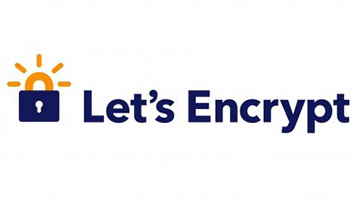How To Install Certbot on Fedora 38

In this tutorial, we will show you how to install Certbot on Fedora 38. In the ever-evolving landscape of the web, security remains paramount. Establishing secure connections between web servers and users is a critical aspect of ensuring the integrity and confidentiality of data. SSL/TLS certificates, the trusty guardians of data encryption, are a fundamental component in achieving this security.
This article assumes you have at least basic knowledge of Linux, know how to use the shell, and most importantly, you host your site on your own VPS. The installation is quite simple and assumes you are running in the root account, if not you may need to add ‘sudo‘ to the commands to get root privileges. I will show you the step-by-step installation of the Certbot Let’s Encrypt on a Fedora 38.
Prerequisites
- A server running one of the following operating systems: Fedora 38.
- It’s recommended that you use a fresh OS install to prevent any potential issues.
- SSH access to the server (or just open Terminal if you’re on a desktop).
- An active internet connection. You’ll need an internet connection to download the necessary packages and dependencies for Certbot.
- A
non-root sudo useror access to theroot user. We recommend acting as anon-root sudo user, however, as you can harm your system if you’re not careful when acting as the root.
Install Certbot on Fedora 38
Step 1. Before we can install Certbot on Fedora 38, it’s important to ensure that our system is up-to-date with the latest packages. This will ensure that we have access to the latest features and bug fixes and that we can install Certbot without any issues:
sudo dnf update
Step 2. Installing Certbot on Fedora 38.
Certbot is the unsung hero of this endeavor, as it simplifies SSL/TLS certificate management. Let’s install Certbot and its prerequisites:
sudo dnf install certbot python3-certbot-nginx python3-certbot-apache
Step 3. Preparing Your Web Server.
Certbot needs to interface with your web server to configure SSL/TLS certificates. For Nginx, no additional setup is required. However, for Apache, you need to enable the mod_ssl module:
sudo dnf install mod_ssl
Afterward, restart Apache:
sudo systemctl restart httpd
Ensure that Certbot is correctly installed by running:
certbot --version
Step 4. Obtaining SSL/TLS Certificates.
With Certbot in place, you’re ready to obtain SSL/TLS certificates for both Nginx and Apache.
- For Nginx:
Run the following command to acquire a certificate for your Nginx site:
sudo certbot --nginx
Certbot will prompt you to select the domain you wish to secure. Afterward, it will automatically configure the SSL/TLS certificate for Nginx.
- For Apache:
For Apache, use this command to request a certificate:
sudo certbot --apache
Certbot will guide you through the process of selecting the domains you want to secure and automatically configure the SSL/TLS certificate for Apache.
Step 5. Automating Certificate Renewal
Certbot can automatically renew your SSL/TLS certificates. It’s a best practice to enable this feature:
sudo certbot renew --dry-run
Step 6. Checking SSL/TLS Configuration.
You can verify your SSL/TLS installation using a variety of methods:
- Online Tools: Numerous online tools are available to check your SSL/TLS configuration, such as SSL Labs’ SSL Server Test. Simply enter your website’s URL, and these tools will provide a detailed report on your SSL/TLS setup.
- Browser Developer Tools: You can also use your browser’s developer tools to inspect the security details of your website. This can help you confirm that SSL/TLS is active and configured correctly.